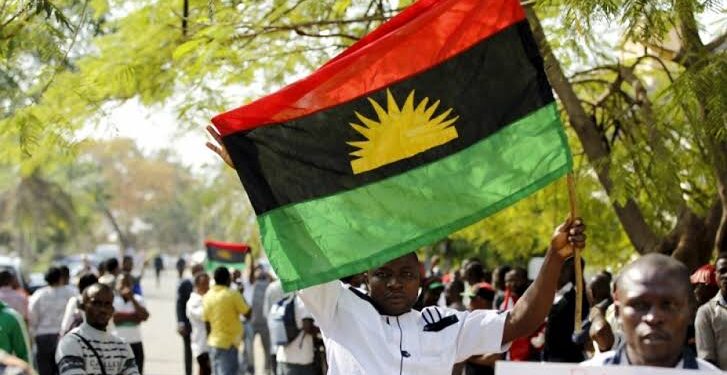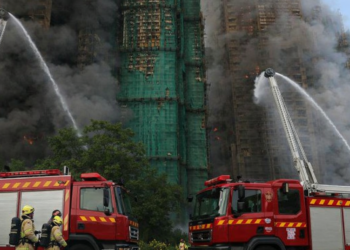The Indigenous People of Biafra (IPOB) warns the Presidency against any plan by the administration to conform to external pressure from United States of America and France for the establishment of a military base in South Eastern Nigeria.
This cautions follows weeks after Northern Leaders announced that they had no space for foreign military base.

Why It Matters:
The Indigenous People of Biafra (IPOB) issued a stern warning against potential plans by the Nigerian government to allocate parts of Southeast Nigeria for the establishment of US or French military bases. This move, if realized, could significantly impact the security and sovereignty of the region, as well as exacerbate existing tensions between the government and IPOB.
What They Are Saying:
IPOB’s Media and Publicity Secretary, Emma Powerful, emphasized that Southeast Nigeria is already grappling with security challenges stemming from terrorist activities. He asserted that hosting foreign military bases in the region would escalate risks and make Biafran territory unsafe. They powerfully urged the Nigerian government to consider the implications carefully, emphasizing that the Northern region, where terrorism is rampant, would be a more suitable location for such bases.
He further highlighted concerns about the government’s alleged secret discussions with the US and French governments regarding the establishment of military bases in Nigeria. The IPOB group powerfully warned of potential repercussions if the government proceeds with these plans without prioritizing the safety and interests of Nigerian citizens.
Bottom Line:
IPOB adamantly opposes the idea of hosting US or French military bases in Southeast Nigeria, citing concerns about safety, sovereignty, and the region’s limited land availability for such projects.
The group urges the government to prioritize the Northern and Western regions, which have larger landmasses and are better positioned to accommodate foreign military installations. IPOB’s stance underscores the complexities of security dynamics in Nigeria and the importance of considering local perspectives in decision-making processes.

















